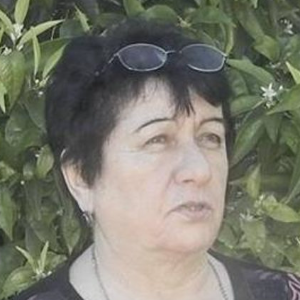Title : Ethnobotanical Value of Cephalaria syriaca
Abstract:
Unique Plant Genetic Resources - unique species of Useful Plants (medicinal, aromatic, spices, dye and poisonous) are distributed in Georgia which cannot be found anywhere in the world. By today's state, many of these plants belongs to endangered species and are included in the Red Data Book of Georgia. Due to erosion of genetic resources and uncontrolled utilization, ex?situ and in?situ/on farm conservation of biodiversity is critical. It is also important intensification of mechanisms of popularization of ethnobotanical traditions and phyto products considering centuries-old traditions and todays priority status of phytopharmacy in Georgia.
During the investigation for enrichment of existing our data base of ethno botanical characteristics of Georgia, it has been identified that in some regions of our country for improvement of quality and taste of bread is valuable with natural phyto supplements such as cephalaria (Cephalaria Syriaca). Adding cephalaria to the bread gives a pleasant scent and makes it soft, increases the duration of storage. This interesting natural phenomenon was the basis for our research direction, because of the negative effect of chemical compounds in our daily life, natural products have recently been in high demand.
Cephalaria syriaca is a herbaceous species of the family Dipsacaceae, mostly distributed in Europe, western and central Asia, and northern and southern Africa. Many of Cephalaria species are used traditionally for different purposes in various part of the world. Phytochemical studies support this genus with extremely rich chemical sources including novel phenolic, flavonoid, iridoid and triterpene-type glycosides together with biologically active glycosides and fatty acid.
Some species of this genus have scientific interest. For example - Cephalaria syriaca, an important oil yielding plant. Economic and medicinal studies support that Cephalaria syriaca, as an additive increases the strength of wheat flour dough in bread making and as a medicinal purposes it’s used for their antimicrobial, antifungal, antioxidant, hypothermic, relaxant, insecticidal, herbicidal and cytotoxic activities.
Cephalaria syriaca is considered as weeds grown in wheat fields. Cephalaria`s height is same as wheat, on the stem it develops 4 branches, seed looks like wheat grain, with bitter taste. We have studied chemical composition of Cephalaria syriaca seed, where results was: protein – 18,46%, fats – 17,76%, carbohydrates – 43,43%, energy value in 100 g product – 422 kkal.
Today, due to adaption within wider bioclimatic habitat, rustic in nature, human domestication, inheritance of rich phytochemical compound, cephalaria is an important and actual plant material to study for a diverse area of science.



